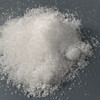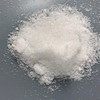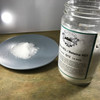Description
Betaine hydrochloride (HCl) is an N-trimethylated form of the amino acid glycine with a chemical structure similar to choline.
Purebulk's betaine hydrochloride is a synthesized and manufactured chemical; it is not obtained from any plant or animal source. It is a compound comprised of betaine and hydrochloric acid. Betaine is metabolized in the body from choline, and is found in foods such as wheat, spinach, and sugar beets. Hydrochloric acid occurs naturally in the stomach (gastric acid), breaking down proteins and protecting the gastrointestinal tract from harmful bacteria.
Betaine HCl is helpful as a digestive aid, particularly for persons with insufficient acid production in the stomach. To support digestive health, betaine HCl supplies hydrochloric acid, a naturally occurring stomach acid. This helps break up fats and proteins in the small intestine for quicker digestion.
Naturopaths have long held that low stomach acid is a widespread problem that interferes with the digestion and absorption of nutrients. Betaine hydrochloride is among the most suggested options for this condition.
Studies have been conducted on whether betaine may help reduce high levels of the amino acid homocysteine in the blood. Scientists are working to determine if a high homocysteine level has a direct negative effect on cardiovascular health or if it is simply a risk factor.
As a nutritional aid, betaine promotes the oxidization of lipids. This is the result of enhancing the production of carnitine. Optimal levels of carnitine in the body contribute to overall physical fitness as fat is efficiently used to fuel the body.
SYNONYMS/ OTHER NAMES:
Acidin; ACIDOL; Achylin; Acidine; Acinorm; BET HCl; Pluchine; Acipepsol; Acidogeno; BETAINE 30,1-Carboxy-N,N,N-trimethylmethanaminium chloride
POTENTIAL SIDE EFFECTS OF BETAINE HCL
Betaine hydrochloride is generally safe at suggested serving sizes. In higher amounts occasional nausea, vomiting and diarrhea have been reported. Those suffering from advanced liver and kidney disease should not use betaine, and it is not recommended for pregnant and nursing women.
Please be aware that the pH of a Betaine HCl solution is extremely low, making it very acidic (with a pH of about 1.0). We recommend Betaine HCl Capsules to avoid risk of irritation to the oral mucous membranes and/or erosion of tooth enamel. It has a characteristic, rather strong taste, with strong odor. For your convenience, PureBulk sells capsule machines plus empty gelatin or vegetarian capsules, so you can make your own easy to swallow capsules.
SUGGESTED USE OF BETAINE HCL
It is Encapsulate to avoid risk of tooth enamel erosion. Start with a small serving size, and gradually increase amount. If taken on an empty stomach, a burning sensation may result. Discontinue if chest or abdominal pain occurs with use. Do not take if you have a history of peptic ulcers, without the advice of your health professional.
BIOAVAILABILITY, MIXING AND SOLUBILITY OF BETAINE HCL
This food-grade betaine HCl has a highly sour and acidic taste but mixes and dissolves readily with water and tastes similar to artificial lemonade when sweetened with sugar or a sugar substitute. Please note betaine HCl differs remarkably in taste from Betaine Anhydrous. Also, please bear in mind the highly acidic nature of betaine HCl and the potential risk of tooth enamel damage when taken as an oral solution instead of capsules.
REFERENCES & FURTHER RESEARCH
University of Maryland Medical Center: Betaine
The information at Purebulk.com is NOT a substitute for medical advice. ALWAYS consult your doctor or pharmacist. Do not use any dietary supplement as a replacement for conventional care, or as a reason to postpone seeing a doctor about a medical problem. Tell all your health care providers about any complementary and alternative practices you use. Give them a full picture of what you do to manage your health. This will help ensure coordinated and safe care.
The U.S. Food and Drug Administration (FDA) regulates herbal and other dietary supplements differently than conventional medicines. The standards for supplements are found in the Dietary Supplement Health and Education Act (DSHEA), a federal law that defines dietary supplements and sets product-labeling standards and health claim limits.
TESTED BY ACCREDITED 3RD PARTY LABS
PureBulk's supplements are tested by accredited third party labs in the USA to ensure their identity, purity and potency. To receive a copy of these test results or any other PureBulk supplement please fill out the COA request form found here.
*NOTE: These statements have not been evaluated by the Food and Drug Administration. This product is not intended to diagnose, treat, cure or prevent any disease.
Servings Per Container: Varies
| Amount Per Serving | % Daily Value* |
|---|---|
| Betaine Hydrochloride 700mg | † |
* Percent Daily Values are based on a 2,000 calorie diet.
† Daily Value Not Established
‡ These supplement facts may vary from the product you receive. Please call for exact numbers.
Other Ingredients: None
Free of: Sugar, Soy, Dairy, Yeast, Gluten, Corn & Additives.
Directions: As a dietary supplement, take 700 mg (3/16 tsp) at the start of each meal, or as directed by a physician. Encapsulate to avoid risk of tooth enamel erosion. Start with a small serving size and gradually increase amount. If taken on an empty stomach, a burning sensation may result. Accurate gram weight scale recommended.
Warning: If you are pregnant, nursing, taking any medications or have a medical condition consult your physician before use. DO NOT take if you have a history of peptic ulcers, without the advice of your health professional. Keep out of reach of children.
__________________________________________________________________________________________________________________________________________________________________________________________________________________
El clorhidrato de betaína (HCl) es una forma N-trimetilada del aminoácido glicina con una estructura química similar a la de la colina.
El clorhidrato de betaína de Purebulk es un producto químico sintetizado y fabricado; no se obtiene de ninguna fuente vegetal o animal. Es un compuesto compuesto de betaína y ácido clorhídrico. La betaína se metaboliza en el cuerpo a partir de la colina, y se encuentra en alimentos como el trigo, las espinacas y la remolacha azucarera. El ácido clorhídrico se produce de forma natural en el estómago (ácido gástrico), descomponiendo las proteínas y protegiendo el tracto gastrointestinal de las bacterias dañinas.
La betaína HCl es útil como ayuda digestiva, especialmente para las personas con insuficiente producción de ácido en el estómago. Para apoyar la salud digestiva, la betaína HCl suministra ácido clorhídrico, un ácido estomacal natural. Esto ayuda a descomponer las grasas y las proteínas en el intestino delgado para una digestión más rápida.
Los naturópatas han sostenido por mucho tiempo que el bajo nivel de ácido estomacal es un problema generalizado que interfiere con la digestión y la absorción de nutrientes. El clorhidrato de betaína es una de las opciones más sugeridas para esta condición.
Se han realizado estudios para determinar si la betaína puede ayudar a reducir los altos niveles del aminoácido homocisteína en la sangre. Los científicos están trabajando para determinar si un nivel alto de homocisteína tiene un efecto negativo directo en la salud cardiovascular o si es simplemente un factor de riesgo.
Como ayuda nutricional, la betaína promueve la oxidación de los lípidos. Esto es el resultado de la mejora de la producción de carnitina. Los niveles óptimos de carnitina en el cuerpo contribuyen a la aptitud física general, ya que la grasa se utiliza eficientemente para alimentar el cuerpo.
SINÓNIMOS/ OTROS NOMBRES:
Acidina; ACIDOL; Aquilina; Acidina; Acinorm; BET HCl; Pluchina; Acipepsol; Acidogeno; BETAÍNA 30,1-Carboxy-N,N,N-trimetil metanaminio cloruro
POSIBLES EFECTOS SECUNDARIOS DE LA BETAINA HCL
El clorhidrato de betaína es generalmente seguro en las dosis sugeridas. En cantidades mayores se han reportado náuseas, vómitos y diarrea ocasionales. Quienes padecen enfermedades hepáticas y renales avanzadas no deben utilizar la betaína, y no se recomienda su uso a las mujeres embarazadas y en período de lactancia.
Por favor, tenga en cuenta que el pH de una solución de HCl de betaína es extremadamente bajo, lo que la hace muy ácida (con un pH de alrededor de 1,0). Recomendamos las cápsulas de Betaine HCl para evitar el riesgo de irritación de las membranas mucosas orales y/o la erosión del esmalte dental. Tiene un sabor característico, bastante fuerte, con un fuerte olor. Para su comodidad, PureBulk vende máquinas de cápsulas más cápsulas vacías de gelatina o vegetarianas, para que pueda hacer sus propias cápsulas fáciles de tragar.
USO SUGERIDO DE LA BETAINA HCL
Se encapsula para evitar el riesgo de erosión del esmalte dental. Comienza con una pequeña porción, y gradualmente aumenta la cantidad. Si se toma con el estómago vacío, puede producirse una sensación de ardor. Descontinuar si se produce dolor en el pecho o el abdomen con el uso. No lo tome si tiene antecedentes de úlceras pépticas, sin el consejo de su profesional de la salud.
BIODISPONIBILIDAD, MEZCLA Y SOLUBILIDAD DE LA BETAINA HCL
Este HCl de betaína de grado alimenticio tiene un sabor muy ácido y agrio, pero se mezcla y se disuelve fácilmente con agua y tiene un sabor similar a la limonada artificial cuando se endulza con azúcar o un sustituto del azúcar. Tenga en cuenta que la betaína HCl difiere notablemente en el sabor de la betaína anhidra. Además, tenga en cuenta la naturaleza altamente ácida de la betaína HCl y el riesgo potencial de dañar el esmalte dental cuando se toma como solución oral en lugar de cápsulas.
REFERENCIAS E INVESTIGACIÓN ADICIONAL
Centro Médico de la Universidad de Maryland: Betaine
Pubmed: La suplementación con betaína en dosis bajas conduce a la reducción inmediata y a largo plazo de la homocisteína en plasma en hombres y mujeres sanos.
La información en Purebulk.com NO es un sustituto del consejo médico. Consulte SIEMPRE a su médico o farmacéutico. No utilice ningún suplemento dietético como sustituto de la atención convencional, o como una razón para posponer la consulta con un médico sobre un problema médico. Informe a todos sus proveedores de atención médica sobre cualquier práctica complementaria y alternativa que utilice. Déles un panorama completo de lo que hace para controlar su salud. Esto ayudará a garantizar una atención coordinada y segura.
La Administración de Drogas y Alimentos de los Estados Unidos (FDA) regula los suplementos herbarios y otros suplementos dietéticos de manera diferente a los medicamentos convencionales. Las normas para los suplementos se encuentran en la Ley de Salud y Educación sobre Suplementos Dietéticos (DSHEA), una ley federal que define los suplementos dietéticos y establece las normas de etiquetado de los productos y los límites de las declaraciones de salud.
PROBADOS POR LABORATORIOS ACREDITADOS DE TERCEROS
Los suplementos de PureBulk son analizados por laboratorios acreditados de terceros en los Estados Unidos para asegurar su identidad, pureza y potencia. Para recibir una copia de los resultados de estas pruebas o cualquier otro suplemento de PureBulk, por favor, rellene el formulario de solicitud de COA que se encuentra aquí.
*NOTA: Estas declaraciones no han sido evaluadas por la Administración de Alimentos y Drogas. Este producto no está destinado a diagnosticar, tratar, curar o prevenir ninguna enfermedad.
Tamaño de la porción: 700 miligramos
Porciones por envase: Varía
Cantidad por porción % Valor diario






